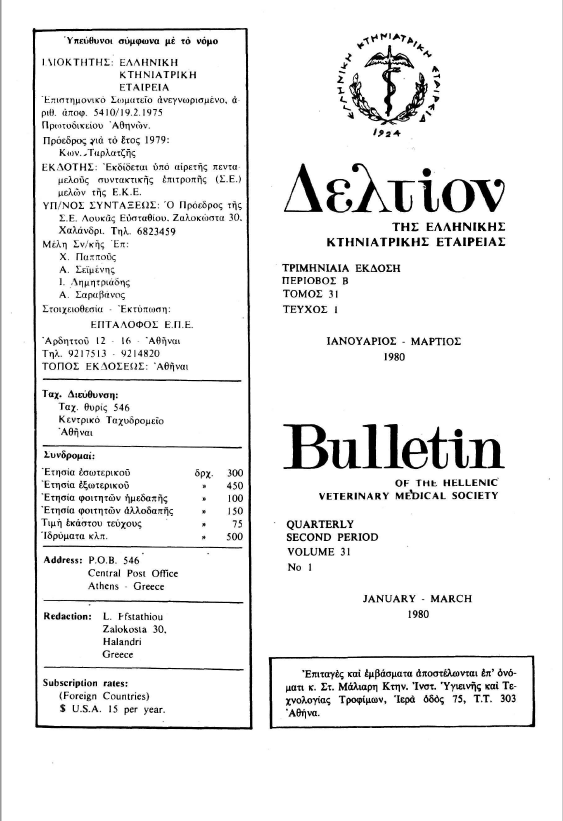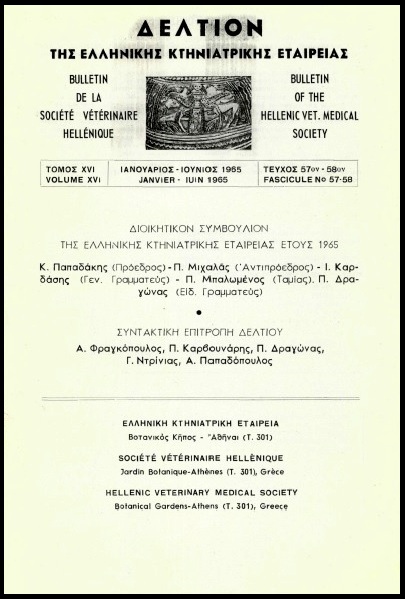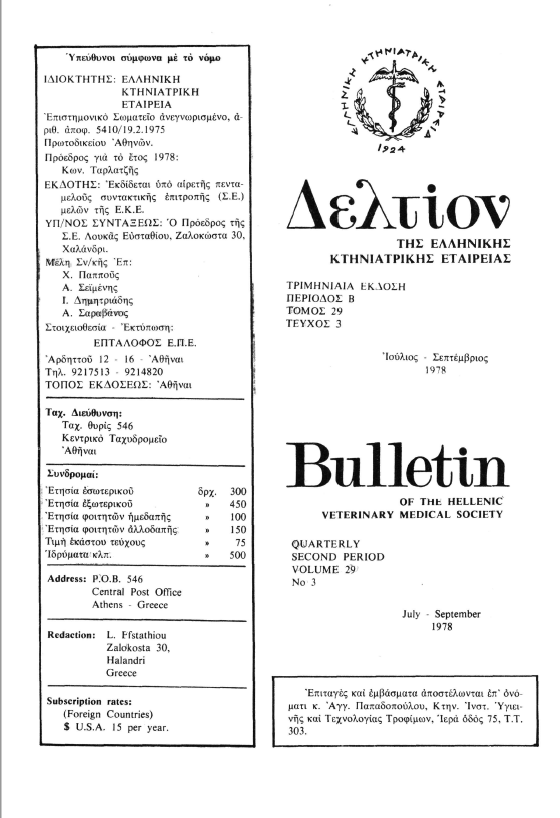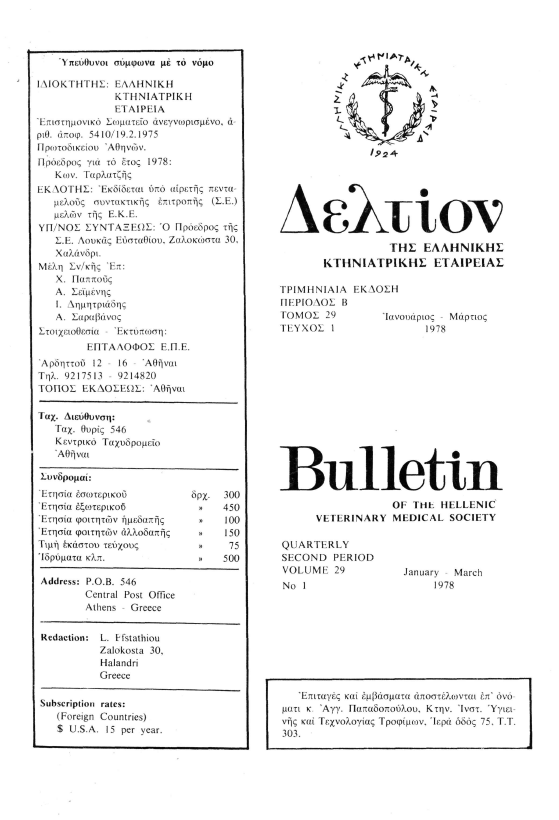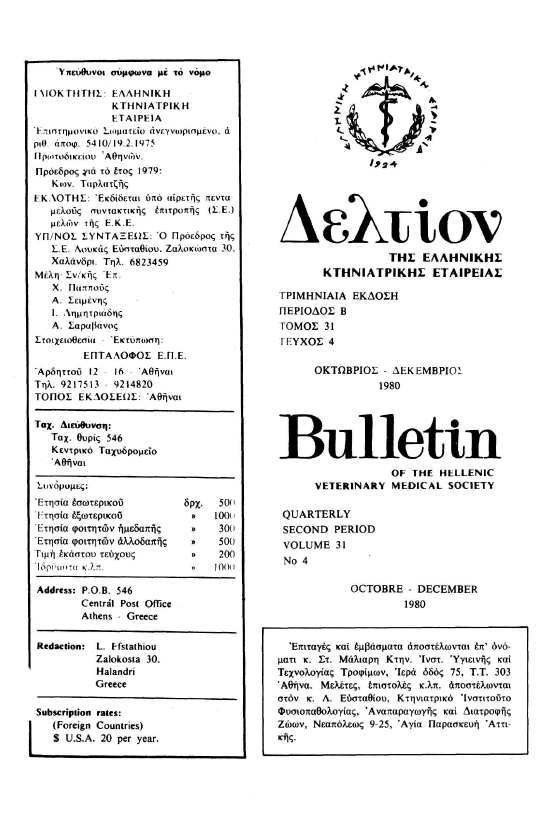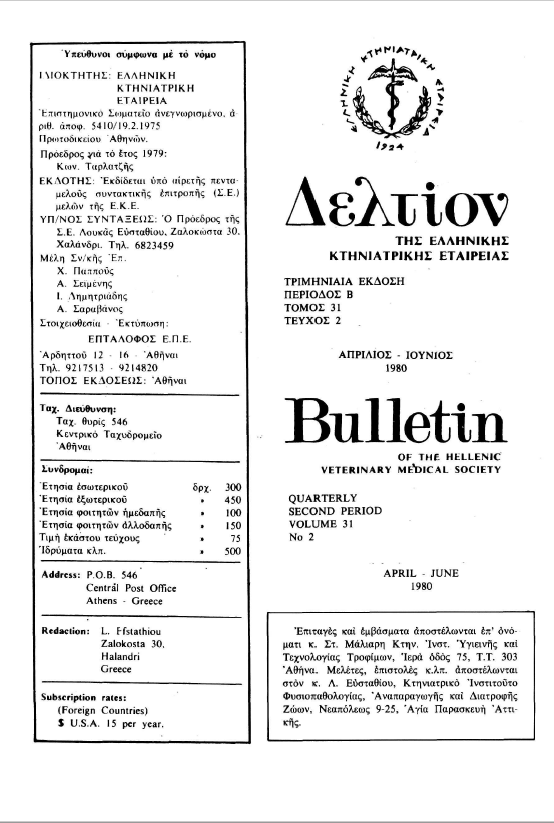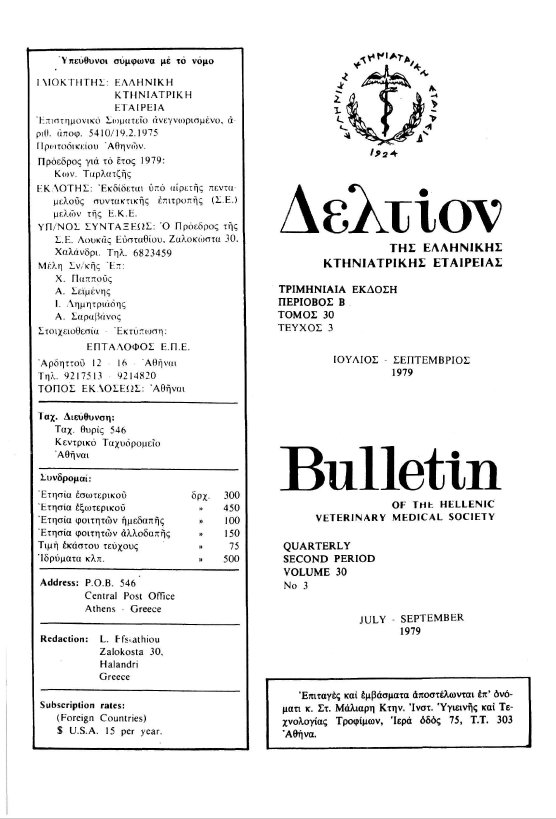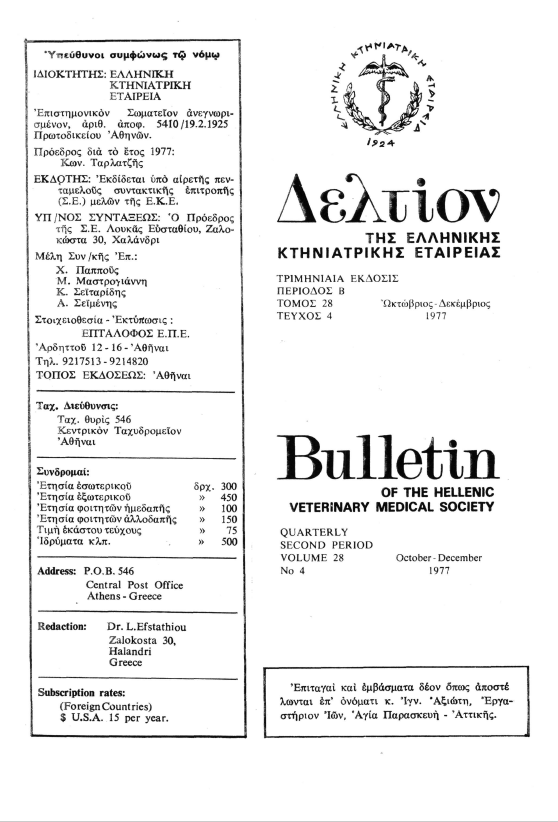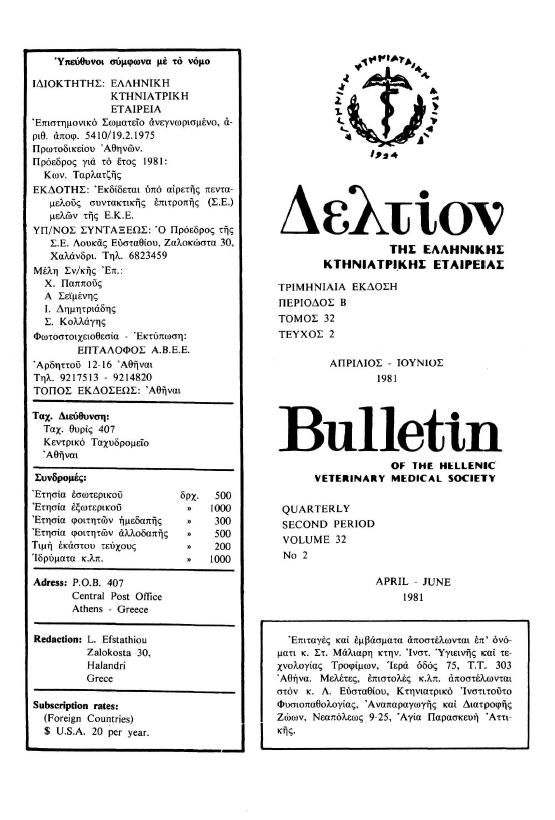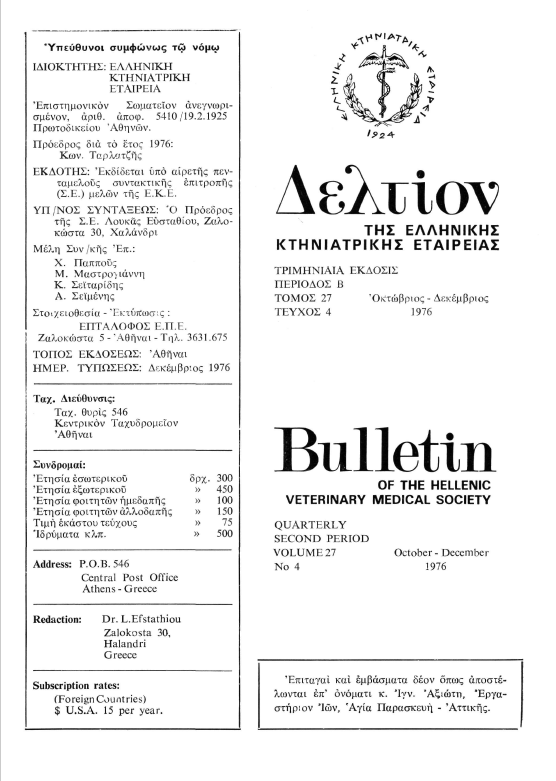The Viterinary Profession in Greece: Review of the present and prospects for the future. IV Anticipated developments for veterinary science.. A. Expectations of the profession
Abstract
Although the future role of Vererinary Science in society is definitely seen as a very important one, success depends primarily on the veterinarian's desire to adapt to new situations, meet challenges created by the scientific revolution, and accept his many difficult professional responsibilities. For a better understanding of what is entailed, discussion is made of (1) the role of the veterinarian in the task of increasing animal protein supply by developing more productive but less demanding farm animals; (2) the basic nutritive elements and food requirements for man and animal; (3) some of the latest scientific developments related to animal science; (4) the importance of extensive veterinary participation in the development of scientifically desired features of farm animals — a participation thus far either not fully realized or prohibited by law; (5) the search for new sources of animal feed, such as residue from the breakdown of cellulose; and (6) the changes needed in the veterinary profession, including establishment of another Veterinary School and an Institute of Veterinary Science in order to meet the new social, economic, and environmental demands.
Article Details
- How to Cite
-
ΧΑΤΖΗΟΛΟΣ Β. Κ. (2019). The Viterinary Profession in Greece: Review of the present and prospects for the future. IV Anticipated developments for veterinary science. A. Expectations of the profession. Journal of the Hellenic Veterinary Medical Society, 31(1), 17–23. https://doi.org/10.12681/jhvms.21430
- Issue
- Vol. 31 No. 1 (1980)
- Section
- Articles

This work is licensed under a Creative Commons Attribution-NonCommercial 4.0 International License.
Authors who publish with this journal agree to the following terms:
· Authors retain copyright and grant the journal right of first publication with the work simultaneously licensed under a Creative Commons Attribution Non-Commercial License that allows others to share the work with an acknowledgement of the work's authorship and initial publication in this journal.
· Authors are able to enter into separate, additional contractual arrangements for the non-exclusive distribution of the journal's published version of the work (e.g. post it to an institutional repository or publish it in a book), with an acknowledgement of its initial publication in this journal.
· Authors are permitted and encouraged to post their work online (preferably in institutional repositories or on their website) prior to and during the submission process, as it can lead to productive exchanges, as well as earlier and greater citation of published work.

